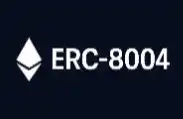News
Stay up to date on the latest crypto trends with our expert, in-depth coverage.

From perpetual contract tokens to privacy tokens, it is now the turn of AI tokens.




x402 solves the payment problem, while ERC-8004 addresses the trust issue. x402 took 5 months from release to breakout, while 8004 may be even faster.

Is it because the model is unsustainable, the ecosystem has yet to launch, the competitors are too strong, or is there simply insufficient market demand?

RWA altcoins are regaining traction ahead of November, and Maple Finance, Keeta, and Stellar stand out as key players. Each token offers a different setup — from SYRUP’s reversal potential to KTA’s continuation strength and XLM’s breakout watch — highlighting where traders may find the next leg of momentum in the RWA market.

DAT Connection is Risk, but it could also be the Future
- 17:17Tom Lee: MSTR is the top hedging tool for addressing cryptocurrency lossesJinse Finance reported that Strategy (MSTR) stock has dropped by 43%, and with institutional crypto investors having limited on-chain hedging options, they have begun using this stock to hedge losses. Tom Lee from Bitmine Immersion stated that since MSTR has ample liquidity and holds a large amount of bitcoin, it is regarded as a bitcoin proxy in the market, making it the preferred hedging tool. After the sharp decline in October, crypto market liquidity remains weak, and the lack of strong native crypto hedging tools has forced traders to choose to short MSTR.
- 16:51BNB surpasses $830Jinse Finance reported that according to market data, BNB has surpassed $830 and is now trading at $830.34, with a 24-hour increase of 1.57%. The market is experiencing significant volatility, so please manage your risks accordingly.
- 16:171inch: $12 billion in DeFi liquidity remains idle, with 95% of funds unusedJinse Finance reported that a report released by 1inch shows that 83%-95% of liquidity in major decentralized finance (DeFi) pools such as Uniswap and Curve is idle, with billions of dollars in funds not generating fee income or any returns. This inefficiency particularly affects retail liquidity providers: 50% of retail users have suffered losses due to impermanent loss, with total net losses exceeding $60 million. 1inch proposes to address this issue through its Aqua protocol—which allows DeFi applications to share a unified liquidity pool, aiming to optimize liquidity utilization, reduce capital fragmentation, and increase returns for liquidity providers.